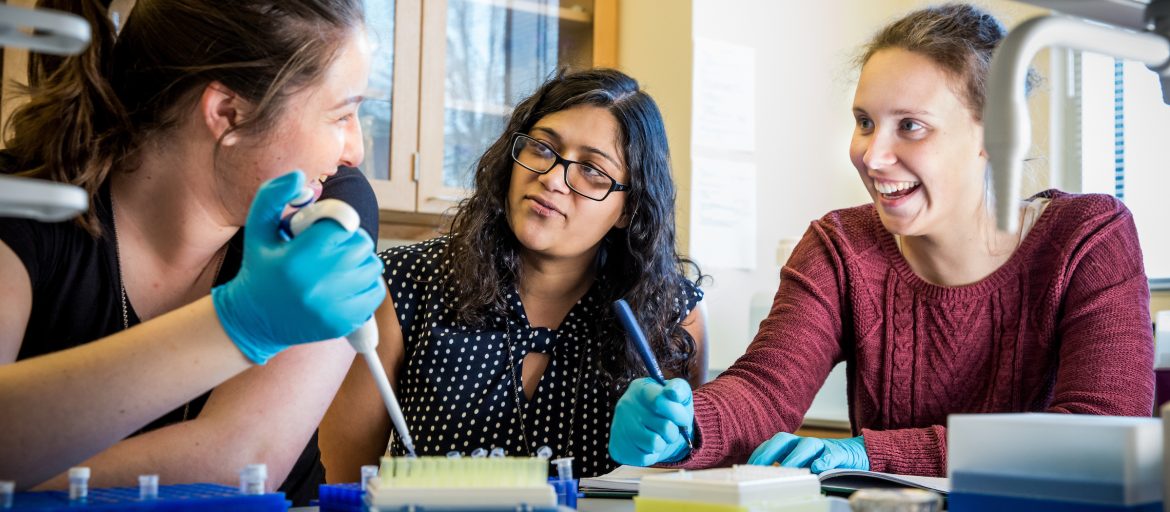Every day of the Summer 2019 semester biology major Taylor Morgan heads into the lab in Zeis Hall to check on his cells. They need food and water; they might need a little bath.
“They’re like little animals,” Morgan said.
The cells, and Morgan, are part of an ongoing research project headed up by Angel Kaur, assistant professor of neuroscience and director of the neuroscience minor program at UNC Asheville, which is investigating the neurodegenerative disease Amyotrophic Lateral Sclerosis (ALS).
“ALS appears to require a complex interaction between genes and the environment,” Kaur explained. “You could have genes that make you more vulnerable to developing ALS but never actually get it because you weren’t environmental risk factors. It seems to take a combination of those two things.”
Kaur and her research students are investigating two particular proteins, and how mutations within those proteins are linked to ALS. One group of students, including Morgan, works on testing and examining the effects of protein TDP-43 on a motor neuron-like cell line, derived from the spinal cords of mice.
But cells in a culture flask can’t tell you much about the environmental factors that are linked to ALS. For that, you need a living organism. That’s where the fruit flies come in.
Mikayla Zopfi, a senior biology student, and her classmates test fruit flies by placing them in tall cylinders and measuring how long it takes them to walk to the top. These behavioral tests provide the team with valuable information about how mutations of the TDP-43 protein affect the loss of motor function.
“It’s a live model,” Zopfi said, “and they still relatively accurately give us in vivo results; in vitro is like cells in a petri dish, where in vivo is an actual living creature. You can do flies, mice, lab rats. Flies are simple and take up very little space, they’re easy to take care of.”
For Zopfi, Morgan, and the rest of the Kaur Lab, this research project is about asking interesting questions, and doing the real work of discovering the answers.
“Students get to experience what it is like to be a scientist,” Kaur said. “You have to make mistakes. Ninety-five percent of science doesn’t work, and 5 percent does work. You can let it stop you or you can learn to look at it another way.”
The result of the Kaur lab’s work goes beyond the student’s own benefit, as well. Data gathered through this work will be used by Brian Drawert, assistant professor of computer science, to develop computational models of disease progression. Kaur learned about Drawert’s work at a presentation he gave at a new faculty lecture series. “The broader goal is to scale that up to the tissue level,” Kaur said.
The project is also giving the students in the Kaur lab the opportunity to explore what they might want to do after graduation—perhaps a job in the Research Triangle Park managing a biotech company for Morgan, who is a management minor, or doing clinical research on diseases of the eye for Zopfi. In the meantime, spending this summer in the lab gives all the students a chance to work closely with a professor who is truly invested in their success.
“Dr. Kaur just really understands what you’re going through, what you’re frustrated about, and it’s nice,” Zopfi said. “She’s super passionate about it, and is willing to help you find an answer, or do more research on her own to help get back to you with an answer. It’s great.”
For more information on the neuroscience major at UNC Asheville, visit, the department webpage.
 Angel Kaur, assistant professor of neuroscience and director of the neuroscience minor program, and two of her students work together in the lab.
Angel Kaur, assistant professor of neuroscience and director of the neuroscience minor program, and two of her students work together in the lab.
Share
Permalink: